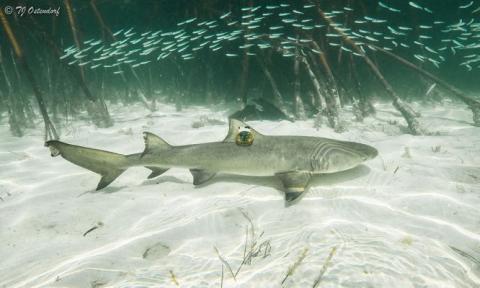
A new shark tracking device reveals the day-to-day activities of lemon sharks.
The life of most marine animals is a bit of a mystery—it’s pretty hard to track any animal cruising through the ocean. But now, Murdoch University fish biologist Lauran Brewster and her team have found a neat way to get an up-close view of the day-to-day activities of a wild marine species.
“It can be very hard to study wild animals in their natural environment, particularly when they travel long distances or live in an environment that makes them hard to observe,” says Lauran.Lemon sharks are found in the Americas and West Africa, spending most of their time in shallow ocean waters. While juveniles are fairly well studied in enclosed conditions, it is not so easy to study them in the wild. They spend most of their day in hard-to-reach places, so it’s hard to know what they are up to throughout the day.
“This has prevented scientists from determining what these animals do on a daily basis and how long they spend performing different activities,” Lauran says.
“Accelerometers (like those used in wearable Fitbits) can help us overcome this hurdle. They collect body movement data from these animals, which can then be used to calculate energy expenditure and be classified into different behaviours,” she adds.
Lauran started by tagging semi-captive sharks and watching their behaviour. The data obtained from these gizmos was analysed through a complex statistical approach known as machine learning.
Read more
